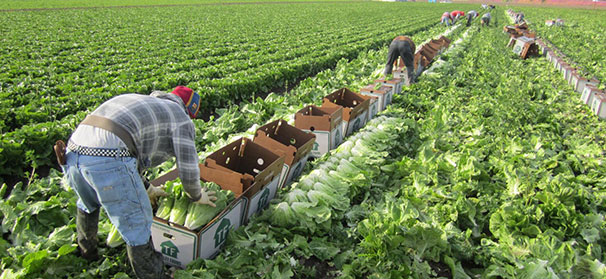Aug 7, 2018Link to cattle operation eyed in romaine lettuce E. coli outbreak
The U.S. Food and Drug Administration (FDA), along with the Centers for Disease Control and Prevention (CDC) and state and local partners, continues to investigate a multi-state outbreak of E. coli O157:H7 illnesses linked to romaine lettuce from the Yuma growing region.
FDA issued the following update:
“On July 31 and Aug. 1, 2018, the FDA participated in a meeting of the Leafy Greens Food Safety Task Force that was formed in response to the serious outbreak of E. coli O157:H7 associated with romaine lettuce that occurred earlier this year. During the meeting FDA shared preliminary hypotheses from the Environmental Assessment in Yuma to facilitate conversations with state and local officials, industry and local growers on the hypotheses and associated actions necessary to prevent such an outbreak from occurring again.
As FDA has previously stated, samples of canal water have tested positive for the outbreak strain of E. coli. FDA continues to consider that contaminated water coming into contact with produce, either through direct irrigation or other means, is a viable explanation for the pattern of contamination.
But other hypotheses were discussed as well. FDA notes that the canal is close to a Concentrated Animal Feeding Operation (CAFO), a facility with a large number of cattle on the premises. The CAFO can hold in excess of 100,000 head of cattle at any one time and the FDA traceback information showed a clustering of romaine lettuce farms nearby.
Our experts continue to work on examining potential links between the CAFO, adjacent water, and geologic and other factors that may explain the contamination and its relationship to the outbreak. Additional sampling activities will be conducted to further explore and narrow down hypotheses in the near future. Our findings will be detailed in a finalized environmental assessment report.
We urge other government and non-government entities, produce growers in the region, and those engaged in managing the canal systems to work with FDA and marshal and deploy resources to achieve our collective food safety goal. Broad engagement from the surrounding community is critical to developing and implementing remediation measures to reduce the potential for another outbreak. We believe local in-depth knowledge and actions are critical in helping resolve this issue in order to protect public health.
The Environmental Assessment report will be made publicly available when complete.”















